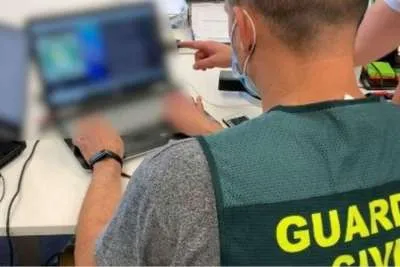How to spot fake news from deniers and anti-vaxxers who are trying to fool us
- 10-08-2021
- National
- Canarian Weekly
Fake messages are in circulation everywhere during the pandemic, and anyone can make the mistake of believing them and sharing them to more people. The EFE news agency in Spain, has profiled some of the things to look for and how to spot that these videos or messages are not real, and actually how they are causing more harm and confusion than good.
"Uncensored: you will not see this in the media," warns a message that appears on our mobile phone along with a video in which a ‘respectable’ face identified as an expert cites data and sources to show us that ‘they’ are lying to us. Although in reality, it is the person in the video that is lying to you.
There are, however, some clues in these messages and videos that help us identify them, and see through what they are saying.
Be careful who tells us the truth in the face of censorship.
- Indication:
The first warning sign in many of these messages is that their authors claim that they are telling the truth in front of politicians and the media, or what they call, "the system" to refer to the powers and institutions with decision-making capacity for society.
- Example:
Almudena Zaragoza, a member of the deniers association 'Biólogos por la Verdad', defends in a video published on the platform's website, that her group wants to "give a completely different vision to that shown by the entire TV networks, pseudo-terrorist journalists, and politicians.” “They are all a sham," she claims.
- Explanation:
The usual appeals of deniers to "wake up" to a great lie from the established powers that manipulate us "like sheep" and the "censorship" of the media is usually the prelude to a speech with which someone tries to deceive us at the same time.
This starting point is very advantageous for the defenders of conspiracy theories because it allows them to assure that they are the ones who are right, because if someone contradicts them, they are "part of the system" and, according to their perverse logic, the system always lies. The general reasoning for this is that one of the keys is to make falsehoods popular and difficult to disprove.
They try to fool us with false casual relationships
- Indication:
There are publications on social networks that warn us of the danger of scientific or technological innovations that have harmful consequences that have not been sufficiently explained or tested. They are based on new data or facts that had not occurred before that breakthrough happened.
- Example:
A few months ago, several Internet users related the installation of 5G antennas in Barcelona, to the death of pigeons.
- Explanation:
Another key to the persuasiveness of lies online is that they use very eloquent arguments that seem valid at first glance, but that in fact use false connections between the initial statements and the conclusions. It is what in logic are called "fallacies".
One of the most common among conspiracy theorists is the "post hoc" fallacy, also called the "false cause." According to this type of approach, if one event leads to another, the second is a consequence of the first, ignoring other possible causes.
In the example cited those responsible for sharing these messages did not take into account that the most likely hypothesis of the death of these birds was accidental poisoning, as was reflected in the autopsies.
Data doesn't always say what it seems
- Indication:
Official data that can be consulted on the internet offers clear information about a thesis denied by public institutions.
- Example:
With the advance of mass vaccination, the misinterpretation of data that is claiming the growth in number of deaths of people who had been injected, has increased, as reflected by official notification systems in Europe and the United States.
- Explanation:
There is misleading content that highlights the increase in deaths in those vaccinated against Covid-19, and for this they refer to official data, but it is again an erroneous correlation or fallacy of the "false cause". Those responsible for these claims take a biased angle of the data, for which they take advantage of, by the complexity of their interpretation.
In the case of the EudraVigilance system, which is the system for managing and analyzing information on suspected adverse reactions to medicines that have been authorised or being studied in clinical trials in the EU, its reports explicitly warn that “it should not be inferred that the effects observed after the use of a drug are necessarily a consequence of the administration of that drug, which is not taken into account by those who spread these falsehoods.”
A prestigious degree does not protect against stupidity
- Indication:
On many occasions we receive messages from ‘scientists’ that explain why public institutions are lying to us, and why we should not follow official recommendations. In their messages, they emphasize their status as experts to support the validity of what they are saying.
- Example:
The health crisis derived from the pandemic has led to the creation of associations of denial scientists such as ‘Doctors for Truth’ or the aforementioned ‘Biologists for Truth’, among others. The most active spokespersons for these platforms tend to invest themselves with the authority supposedly provided by their academic qualifications or professional experience, to make lax assertions that go against scientific evidence.
- Explanation:
The fact that the authors of these misleading messages present themselves as experts because they are scientists, is a way of resorting to the "ad verecundiam" fallacy, which involves accepting as evidence for a proposition the pronouncement of someone who is taken to be an authority but is not really an authority.
The same deceptive trick occurs when they cite reputable sources whose conclusions have not been properly verified. In these cases, it is advisable to be wary of doubtful statements that do not have sufficient scientific consensus, and it is advisable to follow the advice of the most prestigious authorities and institutions in the field of knowledge in which the messages of the supposed experts are framed.
Other articles that may interest you...
Trending
Most Read Articles
Featured Videos
TributoFest: Michael Buble promo 14.02.2026
- 30-01-2026
TEAs 2025 Highlights
- 17-11-2025


























































